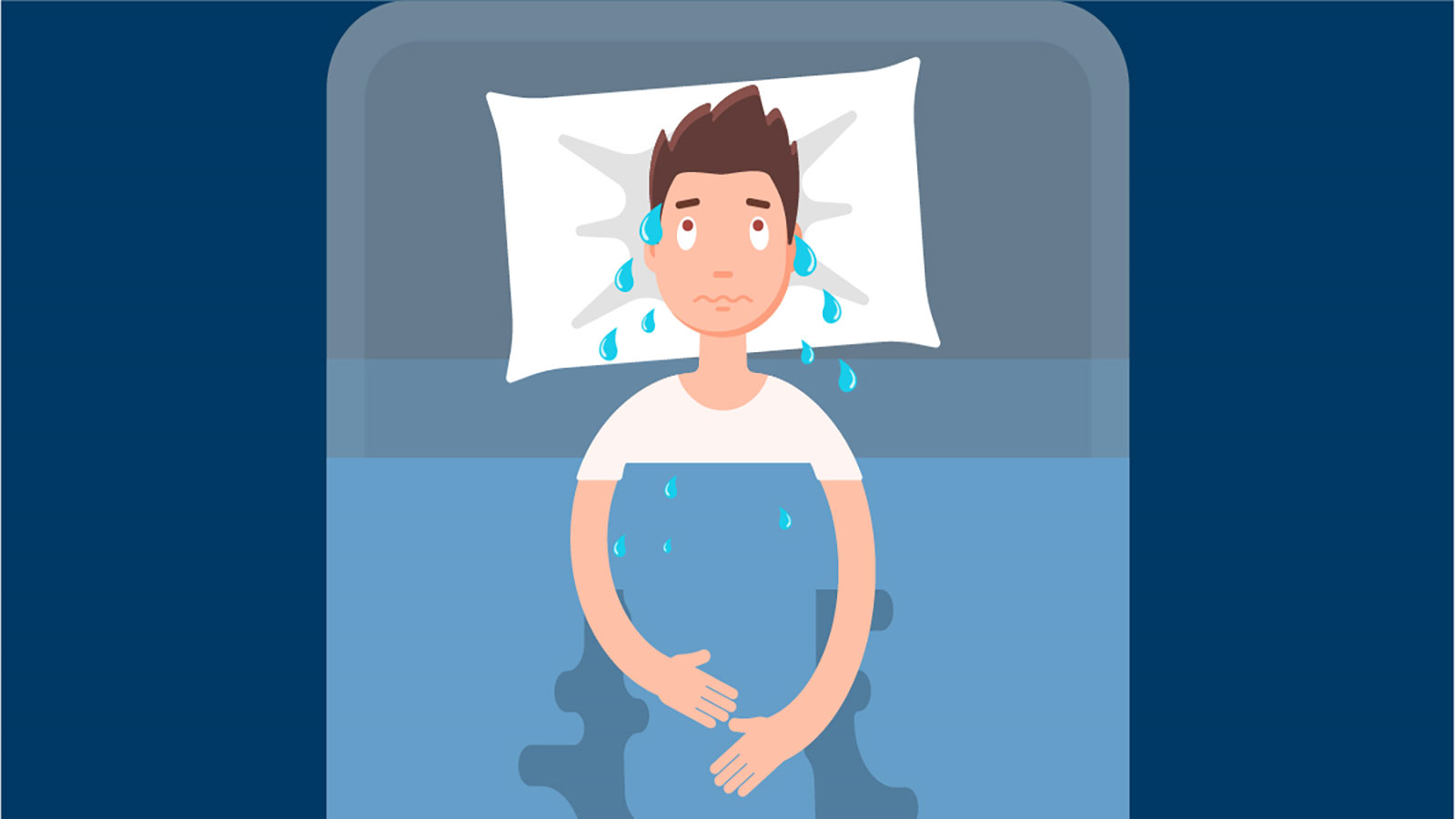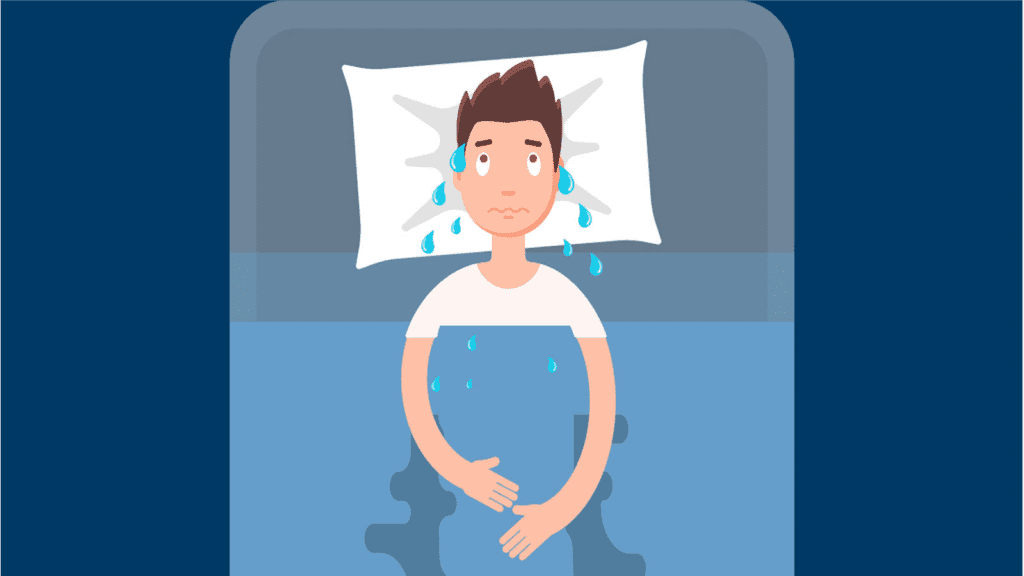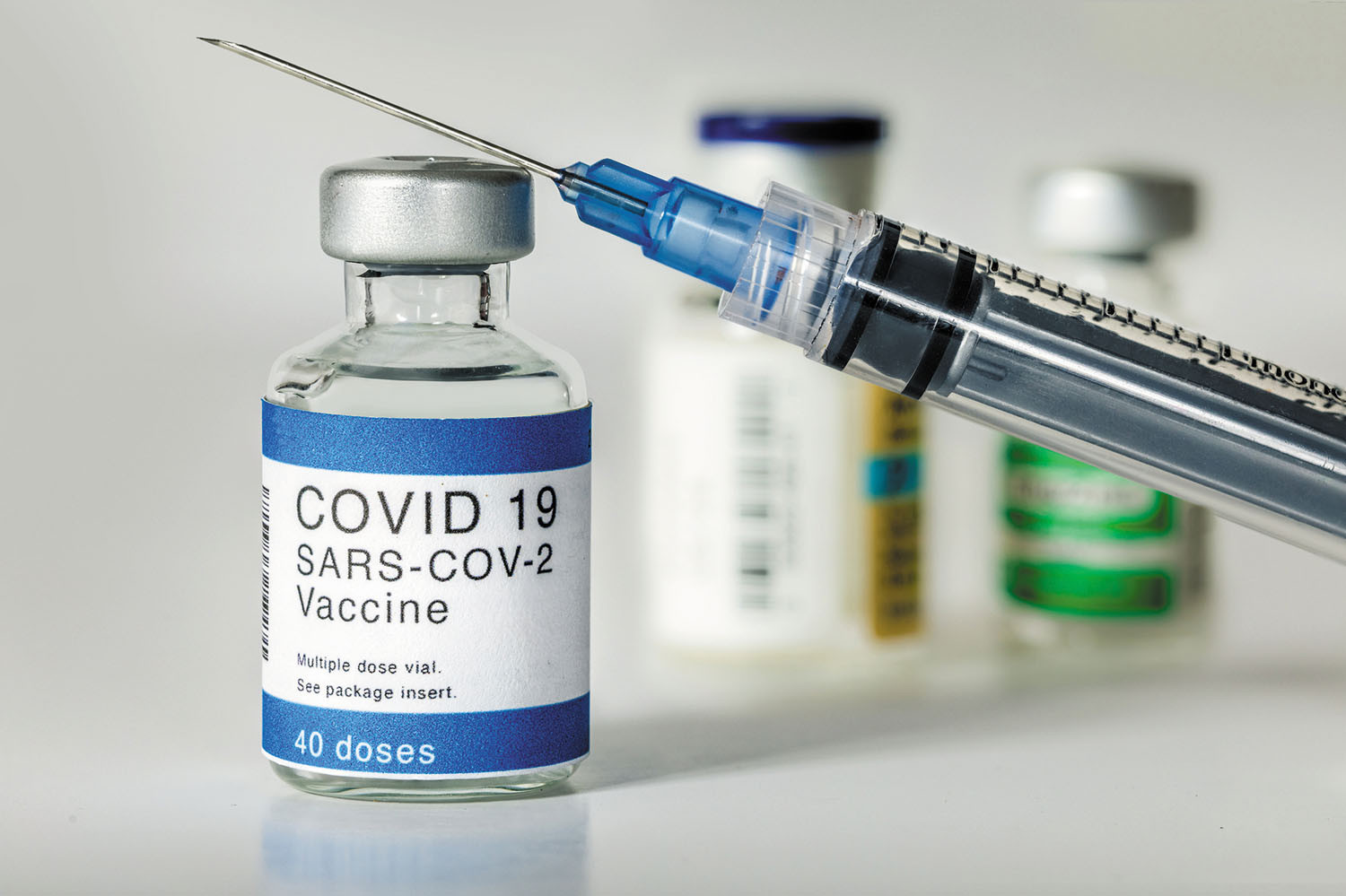Night sweats may be a sign of fatal diseases


While heat can be a majorsource of discomfort when trying to sleep, experts caution that we shouldn’t ignore night sweats, especially if they last for a long time.
Sleep expert Andrea Strand said night sweats can be caused by the environment or underlying medical issues.
She explained that the ideal temperature for a nap should be between 15 and 20 degrees Celsius. But for some people, that’s not always possible, and according to Strand, investing in a super-cooling mattress or switching to a lighter mattress can help eliminate the problem.
Before assuming you have a serious health problem, Andrea, who works with Everynight.com, said you should avoid eating large meals two to three hours before bed, “This means that your digestive system will not work after you fall asleep, allowing your body to rest more. Avoiding spicy and caffeinated foods at night can be a great way to beat night sweats.”
“Caffeine is a stimulant and can increase the heart rate, leading to high blood pressure that can activate the sweat glands,” Strand said.
She explained that stress and anxiety can also cause night sweats and that doing activities such as yoga and meditation before bed can help.
“If you’ve tried these tips and your night sweats persist and you start to feel tired during the day from lack of sleep, it may be time to see a doctor. This is because night sweats can actually be caused by a number of diseases,” Strand added.
When Omicron first appeared, while it is a milder disease, many people
complained of night sweats, so much so that it can leave bed sheets and pajamas wet, or even wet, even if the room the patient sleeps in is cold.
Some medications, such as depression medications and hormone therapy, as well as medications used to treat opioid addiction, such as methadone and medications to treat low blood sugar, can also cause night sweats.
Experts at the Mayo Clinic also explained that night sweats can be a sign of a range of deadly diseases, which include:
Carcinoid tumors
Inflammation of the inner lining of the heart
HIV/AIDS
Lymphoma
- blood cancer
Myelofibrosis (cancer of the bone marrow)
- Non-Hodgkin’s lymphoma
- brain attack
Night sweats can also be caused by alcohol use disorders, as well as drug addiction.
When you stop using alcohol and drugs, you may feel sweaty and shivering.
Experts explained: “Alcohol withdrawal can occur when alcohol intake is heavy and prolonged and then stopped or reduced significantly. It can occur within several hours to four or five days afterwards. Signs and symptoms include sweating, rapid heartbeat, hand tremors, trouble sleeping and nausea.” vomiting, hallucinations, insomnia, agitation, anxiety, and sometimes seizures. Symptoms can be severe enough to impair your ability to work or in social situations.”
While the ailments listed above are the deadliest, most of the time night sweats are due to a less serious condition. It is always important to see a doctor if you are concerned.




